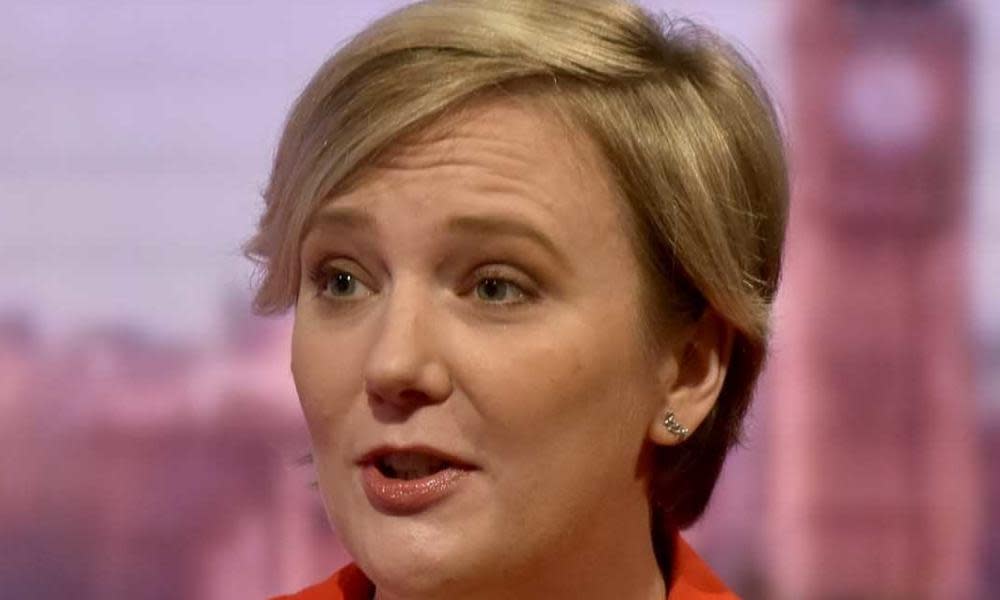Labour MPs in fresh bid to legalise abortion in Northern Ireland

Eighty MPs have signed an amendment that aims to legalise abortion in Northern Ireland as part of a bill before the Commons on Wednesday designed to give civil servants in the region greater power in the absence of a functioning Stormont.
The amendment, put down by Labour’s Stella Creasy and Conor McGinn, would abolish the 1861 Offences Against the Person Act, still applicable in Northern Ireland, which makes obtaining or helping somebody obtain an abortion a criminal offence.
If passed, it would force the Westminster government to overturn Northern Ireland’s notoriously strict abortion laws over the heads of Stormont and, in particular, the Democratic Unionist party (DUP) who have long opposed any loosening of the law.
Creasy and McGinn’s amendment has the support of Labour’s deputy leader Tom Watson, dozens of Labour backbenchers, Green MP Caroline Lucas and a handful of Tories, including Heidi Allen and Tom Tugendhat.
On Tuesday MPs voted to repeal the Victorian-era law via a separate backbench bill. The free vote on a 10-minute rule bill, put forward by Labour’s Diana Johnson, passed by 208 votes to 123, with one cabinet minister, Penny Mordaunt, voting in favour.
However, the bill will not become law because the government has signalled that it will not give it parliamentary time.
Johnson said that Northern Ireland had “one of harshest abortion regimes in the world, with no abortion available in the case of rape, incest or fatal foetal abnormality”. She called on MPs to “remove a Victorian and misogynistic stigma from our abortion laws”.
Speaking after the vote, Johnson said she was “delighted with the outcome, not least because the majority was far greater than last time”. A similar bill proposed by Johnson in the last parliament – in March 2017 – was carried by 30, or 172 to 142.
It was opposed by Fiona Bruce, a Conservative MP, who said: “Whatever members’ differing views on abortion, if we respect devolution we should vote against this motion today.”
Bruce also argued that it was untimely, given that Brexit negotiations meant it was “such a sensitive time in relations between the Westminster government and the Northern Ireland administration”.
Johnson’s bill also aimed to repeal the 1861 act in England and Wales, where subsequent legislation sits alongside the 1967 Abortion Act which legalised abortion. The Victorian law makes obtaining an abortion or helping somebody obtain it a criminal offence, meaning that, in theory, a person buying abortion pills online today could be sent to prison.
While the vote for Johnson’s bill was largely symbolic, it makes Creasy’s and McGinn’s amendment to the Northern Ireland bill far more likely to succeed if it is accepted for debate on Wednesday.
Creasy suggested Theresa May was reluctant to intervene on the issue in Northern Ireland because of her reliance on the DUP to give her government a Commons majority.
She said: “The absence of an assembly cannot be used as an excuse to ignore the human rights of the people of Northern Ireland … The question is whether the prime minister’s more concerned about the DUP than the damage human rights abuses do.”

 Yahoo News
Yahoo News 
